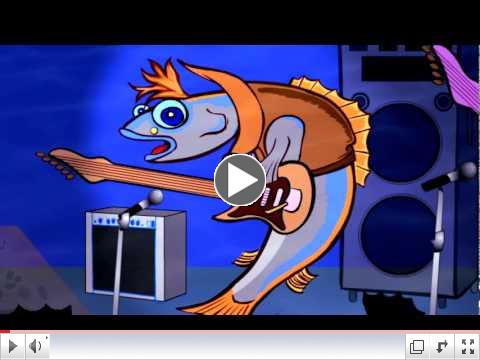|
|
|
|
|
TimeSteps Productions, Inc.
Content Creators, Consultants, & Producers
Partners Marilyn Petrokubi and Rob Lieberman create marketing and branding initiatives for corporations, non-profits & agencies.
Video, Web and Print
|
|
|
|
TimeSteps Video:
WALLEYE & THE FISH BAND
GO VIRAL
 | |
(Click on video window)
"Help Save Our Waters,"
Walleye and the Fish Band |
for USDA-APHIS &
Diversity Marketing & Communications
Save the Fish Campaign
Producers, Marilyn Petrokubi and Rob Lieberman of TimeSteps have done it again. They have explored new waters with this animated music video featuring original characters for Walleye and the Fish Band.
Now they are calling on YOU - all their friends, family and business associates - to "click," 'like" and "share" this new YouTube video. By sharing this animated music video with others, you are participating in an active online awareness campaign to help protect the fish that are dying in the Great Lakes. For real!
VHS disease, (viral hemorrhagic septicemia) has decimated 17 species of fish already, and while it is not contagious to humans, it is severely affecting the aquaculture of the region.
We need your help to make it go viral nationally. This animated music video features the band singing its "hit" song "Help Save Our Waters" with lyrics suggesting tips anglers and boaters can take to stop VHS disease. "These tips will help save native fish populations and ensure that families will continue to enjoy fishing and boating on America's waters," says Pam Goldstein, a partner in Diversity Marketing and Communications, who is managing the Focus On Fish Health campaign.
It all depends on you. Please "click," "like," and "share." And ask your friends to do the same.
|
|

| |
Pencil Test: Ms. Perch
Animator Lee Corey
|
The Creative Team Behind
Walleye and the Fish Band
It started with a guppy of an idea that is rapidly becoming a whale of a tale as virals go. Producers Rob Lieberman and Marilyn Petrokubi launched the idea of an animated music video starring a rock band of fish for agency client, Pam Goldstein, from Diversity Marketing and her client from USDA-APHIS. And the concept was received enthusiastically.
Lieberman and Petrokubi first put on their songwriting hats and came up with lyrics and a melody that conveyed the fish's universal call to action against VHS disease. Concrete tips to prevent the spread of the disease were built into the lyrics, resolving with the message: "it all depends on you." "The trick was not to be too didactic," say Petrokubi. "In the end, we've created a song that is an appeal for help from the fish world. It's infectious, and we're humming it all day long."
The song's music producer and composer, Rob Lieberman, worked with Tom Hammer to execute the instrumentation and realize the track, adding layers of guitar performed by Clive Smith. Walleye's vocals were sung by Ray Andersen (aka Mr. Ray,) with background vocals by Tom and Leah Hammer.
Lieberman also produced the animation, bringing in the talented Lee Corey of Coreytoons, best known for the animated series "Doug" on Nickelodeon. TimeSteps veteran, David Bruce, animation and effects editor, cut the two-minute program using FCP and After Effects, and the results have been extraordinary. The viral is quickly gaining traction on the USDA-APHIS channel.
|
|
What is VHS Disease?
FocusOnFishHealth.org
Viral hemorrhagic septicemia is a severe disease of freshwater and
 | |
Gizzard Shad Fish Die-Off,
Photo by Andy Noyes, NYDEC |
marine fish. It can affect a number of recreational and sport fish species, such as muskellunge, small mouth bass, and yellow perch as well as a number of baitfish and commercial fish.
There are four genetically different types of VHS. Genotypes I, II, and III are mainly found in Europe and Asia and cause severe disease in rainbow trout. Genotype IV (called the North American strain) has been found in wild fish along the East and West coasts of North America (IVa), and more recently in the Great Lakes watershed (IVb).
The IVb strain was first identified in Lake Ontario in 2005. This was the first report of VHS in freshwater in North America. A number of new species of fish have been found to be affected.
As of December 2008, VHS has been reported in dead or diseased wild fish in Lake Erie, Lake Ontario, Lake Huron, and Lake Michigan, the St. Lawrence River, and a number of inland lakes (in Michigan, New York, Wisconsin and Ohio).
To date, VHS has not been found in aquaculture facilities in the Great
Lakes region. VHS does not affect humans.
|
 Marilyn Petrokubi |
|
|
|
|
|
|
|
|